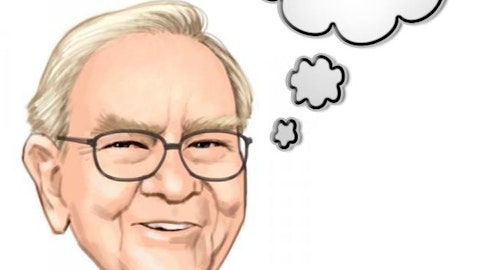So I think from that perspective, when you look at the process we’ve gone through, you look at the benefits to Canada, you look at the fact that HSBC has made the decision to exit this country, and we have to respect that. It would be a very bad signal to the floor and investors to not move forward with this as we have to attract capital into this country. And therefore, for all those reasons, we are confident in the overall outcome of this transaction. So we’re waiting for approval and we have to respect that process. But we feel good about the transaction. We’re well on our way to coding the technology side of this with our HSBC partners, where we’re allowed to prior to approval. And we are very, very excited about what this can do for Canada and what it can do for HSBC clients and communities like British Columbia, where we’ll invest significantly in the BC economy.
So for all those reasons, this is good for Canada. And therefore, we expect we’re close.
Operator: Thank you. The next question is from Ebrahim Poonawala from Bank of America.
Ebrahim Poonawala : Good morning. I guess maybe first question, Graeme, for you in terms of the credit outlook, you talked about peak losses towards the end of the year into ’25. When you look at — when you think about the economy today in Canada and the consumer, do you have enough confidence in the visibility if rates are down going higher? How much downside there is or how much pain there is for the consumer and how that translates into credit losses be unsecured business? Or like how would you rate the level of uncertainty around the macro and what that means and how credit performs over the coming quarters?
Graeme Hepworth : Yes. Thanks, Ebrahim. It’s a good question. As I noted I mean, there’s still — there’s a lot of uncertainty on how credit plays out over 2024. And certainly, as we look beyond that, it’s going to be hugely dependent on how unemployment plays out over that time, how incomes for consumers play out over that time what happens in the interest rate environment, where house price is going, these are all very critical factors into how the impacts will really flow through our books. We certainly captured that in a number of different ways. One, certainly in our baseline, I think Dave commented on some of the big macro factors there. We are assuming in the baseline that interest rates — the short end of the interest rates start to pull back in the latter half of next year.
We assume housing prices are fairly stable going forward, but not accreting terribly fast. But unemployment, we do see picking up and starting to peak out in kind of the midyear of next year. Now we recognize there’s a lot of uncertainty all of that, and that’s where kind of our downside scenarios play a big role for us. When we look at the downside scenarios, the pessimistic scenario, we referred give you some consideration on that. That assumes that house prices could come off 15% kind of stay down that level for an extended period. We assume a rate environment where rates persist higher than they are now for a longer period. And we consider a world where unemployment could get up into the mid-7s. And so that kind of gives you a context for how we think about that downside scenario.
So that all kind of comes into play, and we weigh that up against our portfolio in terms of how we think about what 2024 is looking like, but where we start to kind of at least get early indications of where we think this will peak out. But again, where and when it peaks out, is going to be highly dependent on the path going forward?
Ebrahim Poonawala : That’s good color. And maybe just one of, Nadine on the low to mid-single-digit expense growth guidance Dave just talked about HSBC. How does the timing of HSBC and HSBC impact achievement of incremental savings given the close to convert there? Like would that meaningfully impact this if the deal for whatever reason got pushed out by a few months as far as the closing date is concerned?
Nadine Ahn : No, no. In terms of — so the number that I gave in terms of guidance, Ebrahim, just be clear, excluded anything related to HSBC coming on board. It does include costs related to the integration that we do adjust for. So that guidance is excluding the specified items. So in terms of our work that we’re doing is integrating HSBC, that wouldn’t change anything materially as it relates to the guidance that I provided going into 2024 and that mid to — low to mid-single digits. Because the guidance of the realized HSBC still would hold in terms of our synergies, which we’re still very confident in, in terms of 2-year outlook but most of it coming into the second year.
Operator: The next question is from Paul Holden from CIBC.
Paul Holden : I want to go back to you, Graeme, to start. You gave us a number of the factors that obviously matter for provisioning I guess what I want to ask is how sensitive are your credit models to interest rates versus unemployment? I guess the reason I ask is with the wall of mortgage renewals coming up in 2025, let’s say, we go through a situation where unemployment hold up okay, but rates remain high, the albedo scenario is that versus the opposite way where you may see higher unemployment, but lower interest rates?
Graeme Hepworth : Right. Yes. It’s a good question, Paul. Thank you. Certainly, I would start by saying it’s not like we rely on one set of models here to give us all the answers. We certainly look at these a number of different ways. We obviously have a high degree of detail on our client base that really allows us to kind of examine the impact that we’ll have on them. All this is backstop by a starting point that at origination, all these clients went through kind of a consideration on this so-called stress test to make sure there was a good resiliency to higher interest rates. That’s why we provided some of the disclosure we did this quarter to give you some sense for kind of what that kind of starting rate looks like and kind of what the impact could be on them.
But when we go through that, I would say, yes, hydrants are going to be impactful, but it really is probably looked at it in conjunction with what kind of plays out with house prices. There’s a lot of equity clients have in their houses. And so when they have good equity, that gives them a lot of options — have options to potentially extend amortization to offset the payments to potentially kind of consider like changes on upgrade or downgrade their houses. There’s going to be end on income generation that happens over that period. So I think there’s just a lot of factors that come into it, of which certainly interest rates is part of it, but I wouldn’t say interest rates by itself will tell us the whole story.





